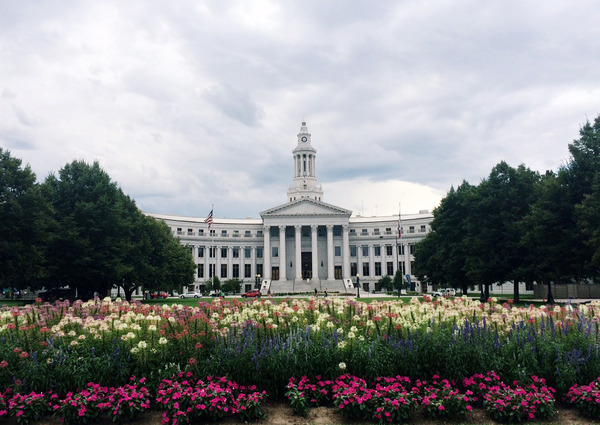The Local newsletter is your free, daily guide to life in Colorado. For locals, by locals.
There’s a reason Colorado is a general election swing state: More than one-third of voters—around a million total—are unaffiliated with a political party. That makes the Centennial State one of just a handful where independent voters outnumber both Democrats and Republicans. And the numbers keep increasing: Two-thirds of young voters who registered in Colorado in 2014 are independents, according to data from the Secretary of State’s office. As a result, Colorado now tops the nation for growth in this group.
Unaffiliated voters with a wide range of political views play a significant role in deciding local and national elections. Both Democratic presidential candidate Bernie Sanders and Republican candidate Donald Trump, for example, can thank independent voters for much of their support in the two ideologically disparate campaigns.

Yet Colorado’s closed primary system leaves unaffiliated voters without a voice, which can greatly impact the outcome of elections. In 2014, only one in five eligible voters participated in Colorado’s primaries, the Secretary of State’s office reports. This year, Colorado’s March caucuses were widely ridiculed for not only disenfranchising independent voters, but for excluding party faithfuls as Democrats were forced to turn away record-breaking crowds while Republicans did away with their presidential preference poll altogether.
Now local legislators are heeding a call for change. “Both the Democratic and Republican sides came together and really took a hard look at the caucus process and realized that it’s not the most inclusive,” Representative Dominick Moreno (D-Commerce City) says.
This week, House lawmakers are expected to take a final vote on bipartisan legislation co-sponsored by Moreno to bring back a presidential primary in 2020. If approved, the fast-tracked bill would then head to the Senate with the goal of passing it before the legislative session ends May 11.
When first introduced, the bill opened all Colorado primaries to independent voters. After negotiations with Senate Republicans, however, the bill now leaves that question up to Coloradans to decide. Representatives from Let Colorado Vote, an independent group backed by the Denver Metro Chamber of Commerce, are working to sponsor a measure on the November ballot that would restore the primary and open voting to independents.
The catch: If Moreno’s bill passes and voters say no to the ballot measure, Colorado will have a presidential primary that remains closed to independents. If citizens vote yes on the measure, Moreno’s bill includes an insurance policy that lets lawmakers define the terms for how independents can participate. Specifically, it would require that unaffiliated voters temporarily align with a party and request a mail-in ballot for its primary election.
This is at odds with Let Colorado Vote’s original proposal, which does not require party affiliation. According to Kelly Brough, president and CEO of the Denver Metro Chamber of Commerce, the measure calls for a single ballot to be automatically mailed to all unaffiliated voters, with two separate columns for Democratic and Republican candidates. Independents would choose one column in which to vote and submit the ballot along with other registered voters.
Moreno cites concerns among officials who administer elections that a ballot with multiple primary choices could confuse voters and potentially invite legal challenges, but Brough disagrees. “I think voters are smarter than we are giving them credit for,” she says.
Let Colorado Vote says lawmakers should respect the voters’ decision in November. “Attempting to change the outcome of an election before it’s even taken place is a prime example of elected officials being out of touch with a majority of Coloradans who think all voices should be heard in a democracy,” says Curtis Hubbard, Let Colorado Vote’s campaign manager.
There’s nothing in our state or national constitution that requires citizens to choose a political party in order to vote. Plus, all taxpayers pay for elections regardless of whether they’re affiliated with a party.
Research dispels the myth that independent voters are really just closet Democrats or Republicans. While some of them do lean left or right, they’re more likely to switch their party preferences over time, according to Third Way. “I think a lot of unaffiliated voters out there legitimately feel that neither the Democratic Party nor the Republican Party fully represents their opinions, their views, and their values,” Moreno says. “That should be respected.”
On this point Brough agrees. “We find that middle voice as valuable as we find the right and left voices,” she said. “Our entire interest in this is to put all those voices at the table.”
Update, 5/11/16: The House bill to restore a presidential primary died in the Senate on Tuesday, with legislators vowing to study the issue. Next up: Look for the dual questions of whether to create a presidential primary and open all primaries to independent voters to be on the statewide ballot in November.








